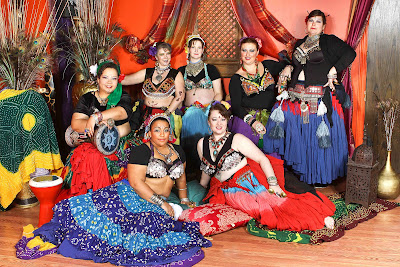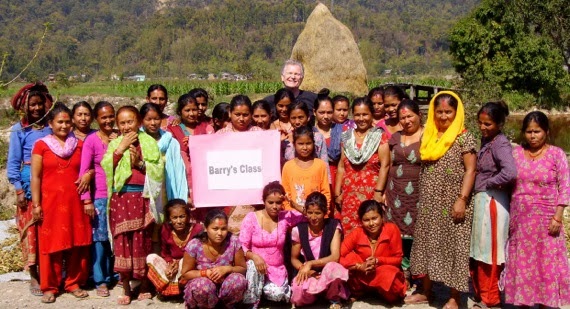Visiting Nepal
Before I begin, let me say that I’m not really a seasoned traveler. I, like most other WELNepalis, am from
Toronto. I’ve traveled to multiple destinations in Canada, US and Europe, and while
in Europe for the first time back in 2007, I experienced minor culture shock
regarding the different languages, casual approaches to line ups, and stringent
dining etiquette in certain areas (no pasta at 5 pm in Paris no matter how
badly you want carbs!).
I felt out of sorts and out of place and thought my Amsterdam
hostel looked like a women’s prison.
To be fair, it kind of did. Picture a dozen bunk beds, one
sink, and a bathroom with semi-open showers. But I was in Amsterdam. I was in the lovely, clean and prosperous Netherlands
and I was complaining. Not complaining about everything, mind you, but
vocalizing my discontent with my accommodations pretty regularly. And it wasn’t
even that my hostel was all that bad. It was just different. As I learned on that trip and others that followed,
different can be hard.
So imagine my shock when I went to Nepal to visit WELNepal’s
project area in February of this year.
That was more than just different.
When I arrived in Kathmandu, I was struck by how tiny and
chaotic the brown wooden airport was. A sign warned me of the forthcoming constant
car horns, as horns are “how Nepali’s express themselves!”
*I should also say, before I go on, that my entire two-week
trip was expertly organized by WELNepal’s good friend (and excellent travel
agent), Nawal Khattri. You can visit Nawal’s website here:
http://discovernepal.com/index.html.
 |
| Thamel district in Kathmandu |
Once I arrived at Hotel Blue Horizon in the famed district
of Thamel, I met up with two friends and fellow WELNepalis Kim and Diana.
 |
| Diana (L), Kim (C) and Ashley (me) (R) |
They had been touring Kathmandu for several days with one of
our wonderful guides, Mingmar, and assured me that I would get used to the
chaos and wildly different surroundings.
But while I will admit it’s hard to feel at ease when you
don’t know how to “work” the culture and you stand out so much by virtue of
your appearance and mannerisms, we never felt unsafe. Aside from bargaining
difficulties while shopping (prepare to haggle!), the people were incredibly
welcoming and eager to chat.
After my first night in Kathmandu, we boarded a Greenline
bus to Pokhara. Pokhara is where tourists begin their Annapurna treks, and as
we found out, Annapurna treks are really hard.
 |
Beautiful Pokhara
Our second wonderful guide, Dawa, met us at the bus station
with our porter, Nima, and both accompanied us to our glorious Trek O Tel in Pokhara.
Trek O Tel is a three-star hotel with beautiful gardens and spacious, homey
rooms with tub showers that are reliably hot. It also boasts a lovely in-house
restaurant with a buffet station.

Now, most tourists who visit Nepal do so to trek. The
trekking can be, depending on your fitness and skill level, unexpectedly difficult
(or at least it was for me!). But the scenery is profoundly beautiful and the
opportunity to immerse yourself — if only very temporarily — in the communities
along the path is unmatched by anything else. You’ll see mountain homes and
colourful (but Spartan) lodges. You’ll also appreciate how hard it is to live
in the mountains when you see people — often women — walking up steep stone
steps in flip flops with sacks of rocks on their backs. You’ll also get pushed
out of the way by a mule carrying a gas tank.
|

After our trek ended, we finally made our way to Sauraha to
enjoy the Chitwan region and meet several of the women’s groups involved in
WELNepal.
Upon arrival, we were greeted by David (affectionately known
in the village as David Daai — which essentially means Brother David). David
Daai is a mini-celebrity in the little village, and people will often come out
of their shops or restaurants to ask him if he’s eaten (a common question in
Nepal). Through David, we met many wonderful families, including the Rimal’s and a hospitable family who taught Anton, my
boyfriend, how to play a traditional Nepali board game on a rainy day (below).
 |
| A family we played some boardgames with on a rainy day |
We went to the Rimal’s tiny and delicious restaurant (run
out of their home) several times over the week we spent in the village. There,
while eating the best dal bhat we had on the trip, we chatted with the couple’s
two daughters, Susmita and Asmita. Susmita is currently working as a volunteer
nurse (at the time, she was preparing for her exams — exams that apparently
went quite well!).
 |
| David Daai, Anton, me and Diana with the Rimal family |
But the most exciting part of the trip came when we got to spend a day with some of WELNepal's women's groups.
Early one morning, we set out on motorbikes driven by some
of WELNepal’s generous and hardworking coordinators, including Raj and
Jugge.
 |
| On my way to the villages |
We visited their office, and then set off in drizzling rain
to see the classes first hand. Our first stop was the women of Ashley and
Anneli’s class (named after me and WELNepal’s webmaster, Anneli West).
The women welcomed us into an open, outdoor space by giving
us beautiful flowers to hold. After the coordinators introduced us and
explained our visit, we got to chat with the women and their curious, excited
children. We also got to take pictures, and every child was excited to see each
and every shot.
After we finished visiting with that class, we went to visit
the women involved in L.M. Clark’s class (L.M. Clark is a Canadian customs
brokerage company that sponsors a Basic Literacy Class). This class had a huge
open area in the middle of what appeared to be a rectangular rural complex. The
women and their children sat outside on the ground, and gave each of us a
bouquet to welcome us.
The women of L.M. Clark’s class weren’t at all shy — and
neither were their children. They happily posed for photos, asked questions
through a translator, and chatted with us about their class and asked us
questions about our lives in Canada. It was during this meeting that we first
saw
Sharmila. Sharmila, as you might expect, carries herself confidently. She
speaks loudly and clearly and is visibly proud of the women she represents.
One interesting question that the women asked is whether or
not any Canadian donors would be willing to start an educational organization
for Tharu children.
 |
| Some of the women (and their children) in L.M. Clark's Class |
For those who don’t know, the Tharu people are an indigenous
ethnic group native to the Terai region of Nepal (the area that borders India).
But although they are recognized as a distinct ethnic group, many children are
disadvantaged from a young age because they do not speak Nepali and, as a
result, fall behind quickly during their early schooling years. During our meeting, one of the women asked if
we could fund a school for Tharu children.
It was hard to say that there wasn’t much we could do
immediately, but that we would keep her important request in mind.
 |
| View of a Tharu village |
After our visit ended, we walked through the village and
admired the colourful houses and sprawling cattle.
Our last stop of the day was George and Eva’s vegetable
growing group.
The women involved in this group grow mushrooms and they showed
us around their expansive property and even showed us where they make and store
their homemade fertilizer. They, too, happily posed for pictures and showed us
their colourful homes.
 |
| George and Eva's women's group |
A day after we visited WELNepal’s women’s groups, we went to
a small Tharu village and spoke with some of the local girls. Diana showed them
pictures of her friends, home and family back in Canada and David Daai told one
of the girls that I let my dog (who I showed her a picture of) sleep in my bed
with me.
She seemed shocked (that isn’t typically done in Nepal), but
was very polite about it. A little Tharu boy also let us pet his beloved baby
goat (below).
After we walked through the Tharu village, we went to visit
the women of Sapana. For those who don’t know, Sapana is a Canadian company
that produces and sells products that are handmade by Nepalese employees using
New Zealand wool (a very international company indeed!). You can check out
their website here:
http://www.sapana.ca/sa/index.php.
They produce clothing and accessories, and the women there showed us the
stuffed children’s toys they were creating in their airy, open office that was
complete with a tiny kitchen and a bedroom for an employee’s new baby.
As our time in Sauraha drew to a close, we tried to say
goodbye to as many of the generous Nepali friends we met as we could. We visted
the Rimal’s one last time for buffalo mo-mos, and they were just as good as the
mo-mos we all devoured several nights earlier at a local musical festival.
 |
| David with local boys at a food and music festival |
We took email addresses and Facebook friend requests and
prepared to leave David Daai’s tiny village and the women of WELNepal,
promising to return as soon as we could. The atmosphere in the village is
unmatched by anything else. It’s not like the bigger cities where you can get lost
among tourist spots and have to work to avoid careening vehicles and stray
animals (though there are lots of heartbreaking strays and cars in the village
and you must be careful to avoid the cars). The village has a quietness and
friendliness about it. The people are open and talkative and helpful. They
welcome you into their shops and homes and restaurants with genuine smiles and
enthusiasm.
There’s also much to do in the village. Besides visiting the
women, we rode an elephant, saw wild rhinos, went on a crocodile canoe ride and
hiked in the jungle.
 |
| Wild rhino! |
A friendly stranger with a flashlight helped us find our way
back to our hotel during a blackout and the employees at that same hotel came
and got us from our rooms one night when they worried we were missing out on a
Tharu dance in a meeting room.
We drank more masala tea than we can remember and bought
more than our share of special Nepali tchotkes. We also saw many mahoods riding
their elephants through town.
You won’t see that in Canada. Ever.
So while it would be a lie to say that a trip to Nepal isn’t
quite different if you don’t know what to expect, it’s certainly more than
worth the long journey to get there.
So, in the words of David Daai, when are you coming?
--- Ashley Newport






































